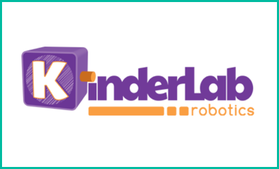
Mitch Rosenberg, CEO of KinderLab Robotics, Inc. states, “We are very excited to receive this Gold Award from Parents’ Choice. Our mission falls directly in line with the tenets of the foundation: that children are born scientists, musicians, artists; that kids learn through play; that we need to help children develop STEM literacy in addition to the traditional skills of reading, writing and arithmetic; and that learning is fun. We are honored to receive this award, which provides additional validation of our original vision for KIBO.”
The Parents' Choice Foundation's panel of educators, scientists, artists, librarians, parents, and kids recognized KIBO as a fun, imaginative and easy way for young children to learn 21st century STEAM concepts by being able to design software code using wooden building blocks, create sequences, and learn design processes. KIBO is unique because it is age-appropriate for young children, and combines STEM with arts and literacy. The Parents' Choice Awards' reviewer, Sharon Heuscher affirms, “Children simply connect the blocks in the desired sequence, scan the sequence with the [robot] base's infrared sensor, and off the robot goes. This is a simple, hands-on, and multi-modal way for children to learn the basics of coding: sequencing, analytic thinking, problem-solving, and more.” She continues, “It's all hands-on. And that's playful learning at its best.”
The Parents' Choice Awards program is designed to help parents and caregivers to make informed decisions about which new products are right for their children, and identify the very best products for children of different ages and backgrounds, and of varied skill and interest levels.
To read the award winning KIBO review, click here.
About KIBO
Young children learn by doing. KIBO gives young children, ages 4-7, the chance to make their ideas physical and tangible—exactly what their young minds and bodies need. And KIBO does all this without requiring screen time on PCs, tablets or smartphones.
KIBO serves as an open-ended platform designed for kids to imagine and create their own robot. STEAM learning with KIBO is fun, imaginative and easy. Your youngest learners will playfully discover these concepts by coding with wooden building blocks, creating sequences, and learning design processes.
About KinderLab Robotics, Inc.
KinderLab Robotics is the creator of KIBO, a robot kit based on 15 years of child development research, that enables young children to build, program, decorate, and run their own robot. Developed by Dr. Marina Umaschi Bers at Tufts University specifically for teachers, KIBO is used in 49 countries and has proven efficacy in helping kids learn STEAM—and get excited about it! KinderLab offers a complete suite of teaching materials that help integrate STEAM elements into a wide range of curricula, including art, cultural studies, and reading literacy. For more information, please see www.kinderlabrobotics.com.












